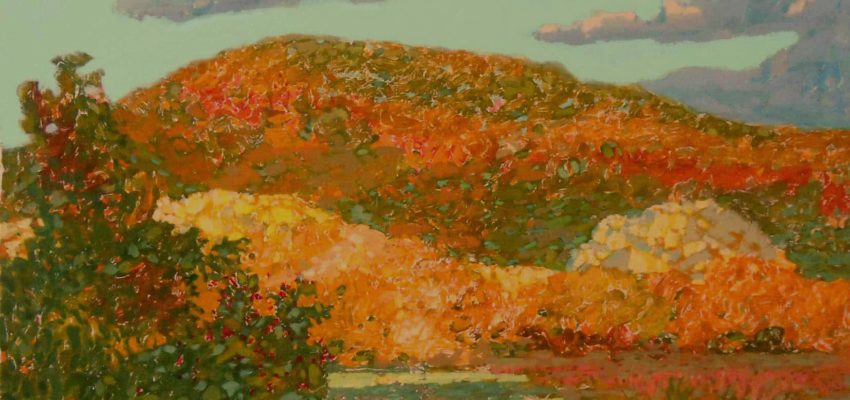Q: Do you distinguish between an artist and a person?
A: Yes and no. When you look at the artist’s works in his absence, there is a certain opinion about his work. If it is interesting and exciting, then you create an image of the author involuntarily in your consciousness, akin to his creativity. But, if you see an arrogant and in many respects, a negative person, you begin to believe that creativity can be insincere. Therefore, you have to evaluate his work separately from the author.
Q: Do you do anything other than painting? How did this activity affect your work?
Yes, I am engaged in graphics, sculpture, large-scale painting, and majolica. Sometimes it is useful to leave painting for a short time and, let’s say, do a relief or a monotype. There are times when you need to pause to comprehend what you are writing, whether you are standing still. This pause can give impetus to new solutions and new plastic.
Q: Has the country in which you lived left a trace in your work?
Oh sure. After all, I by nature as a European also lived in the east country and, unlike native inhabitants, I saw the east as. My work is a synthesis of two worlds. It’s like mixing the blood of the Eastern and the European, and in this case, beautiful children turn out.
Q: What do you write more? Still-life, landscapes or plot pictures?
I am interested in everything. After all, when you write some still lifes, you will get fatigued, so I want to take up the plot or landscape, as one complements the other.
Q: Do you have favorite themes for genre paintings?
Unfortunately, no. I want to write different topics to light up a new story, color, composition. There are artists who all their lives write pictures on the same topic, say, rural, and live it, and do not get tired, because it is given to them from above, and I welcome it.
Q: What do you think? Will beauty save the world?
It seems to me that he is too rational and material, and he is least interested in beauty. Although I think, a certain part, I hope, can save a certain amount.
Q: What does creativity give you in life?
A life!
Q: What do you expect from your viewer?
Understand my creativity, do not flatter.
Q: How do you see the world as an artist?
“Does my work not speak for itself?” I see a world saved by beauty.
Q: Can the creativity of the artist change the consciousness of a person?
Yes, maybe it’s for creativity. I think its main task is to change the consciousness of a person, to see the world through the eyes of an artist. If he is talented, then he can influence the mind of the viewer.
Q: What would you say to your child about becoming an artist?
I would say that this is a very difficult path, but it is very interesting.
Q: Is it easy to part with the creations that you acquire?
Can one answer the question with a question? Is it easy to part with a child?
Q: Do you feel excitement at the opening of your exhibition?
Of course. Always, like the first time. Just like an actor, going on stage. After all, personal exhibitions do not happen every week or every month. It takes time to prepare and, therefore, you get to have some certain experiences. After all, you do not know how the viewer will react to new works.
Q: What is the reason for your creativity?
Creativity is a necessity, if you want, dependence. And the occasion gives life itself and its influence on creativity.
Q: Who is a real artist?
This is someone who knows how to touch the most secret strings of a person’s soul, make him think, experience, breathe the air of a picture, enter it and dissolve into it.

ARTISTNY EDITORIAL
BY REBECCA
June 5th, 2017 9:00 AM
Available in PDF: Artists in conversation, Q&A with Art Monotype Artist Viktor Weyss

